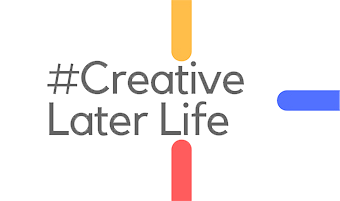Brought to you by:



We are a national network dedicated to creative ageing across England.
Our network membership is free and open to anyone working or interested in creative ageing, including those from arts, culture, age, health, care, community, and academic sectors. Together we champion creativity lead by/ with/ for older people, inspire each other with our work and challenge ageism.
To find and share local creative opportunities for older people to take part in, visit the Age of Creativity Festival which includes opportunities for individuals who may need additional support to take part.